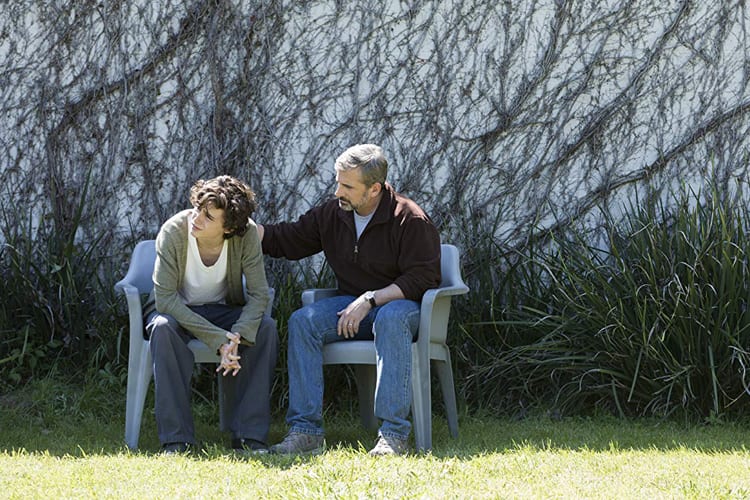“Beautiful Boy”, the latest release from indie purveyor Amazon Studios, should play your heartstrings like a fiddle. It’s based on two different memoirs: “Beautiful Boy: A Father’s Journey Through His Son’s Addiction” by David Sheff, and “Tweak: Growing Up on Methamphetamines” by Nic Sheff. The titles alone should give you a pretty good idea of what the movie is about.
What might surprise you is how unflinchingly and relentlessly “Beautiful Boy” deals with drug addiction. As an independent film existing outside of the Hollywood system, it’s not beholden to narrative conventions like, say, closure. Nic Sheff (Timothée Chalamet), a college-age boy who’s addicted to a myriad of damaging drugs, spends his days, weeks, and months ending up where he started: using. “Beautiful Boy” is a picture of relapse more than it is one of recovery. His father David (Steve Carell) is swept up into Nic’s whirlpool of addiction, nearly drowning alongside him in desperate attempts to guard his life.
The movie’s screenplay examines the cycle of addiction rather than diving into the psyches of David or Nic. By shifting its perspective between father and son and unfolding its narrative non-chronologically, “Beautiful Boy” intentionally disrupts its own flow, never allowing its story or characters to feel like they’re building to anything conclusive. The film’s structure echoes Nic’s journey toward nowhere; its perpetuity gives you the slightest idea of how hard it is to break the spell of addiction.
In order to convey the enormity with which drugs can swallow lives, director Felix Van Groeningen strips David and Nic down by only developing them in relation to Nic’s addiction. In “Beautiful Boy”, everyone in the Sheff family is strangled by Nic’s meth-fueled circle, and the affliction doesn’t allow them to dwell on much else. This suffocation makes any contrasting experience feel like a gasp of fresh air. Moments of joy, play, and hope are relieving—and yet the knowledge of probable relapse always hangs over like a dark cloud. The movie, in acknowledging the difficulties of overcoming addiction, remains mercifully non-judgmental.
But despite having all the right pieces, “Beautiful Boy” isn’t a very moving film. Van Groeningen holds back from the big, emotional moments that might not seem true to life in a tale like this, but he holds too much back. He employs a number of cinematic techniques to create distance between the movie and its audience: rarely going in for close-ups, cutting scenes before emotional payoff, and maintaining a languid pace throughout, among others. Emotional distance is effective when it’s closed—keep the audience at arm’s length, and they’ll cry all the more when you break down and embrace them. But “Beautiful Boy” doesn’t close in enough, and for much of its runtime, it feels cold and distant. Even easy criers might not shed a tear here. The only real emotional cues stem from the soundtrack, which swings the opposite direction with songs pulled straight from a “Sad Indie” playlist.
Chalamet and Carell save the movie from purgatory with magisterial performances. Chalamet, checking another box in his quest to conquer the indie scene, grounds himself in the grime of trying to get clean. He phases through frustration, struggle, and surrender, but never resorts to signaling where his character will go next. Carell, on the other hand, wears his heart on his sleeve: he exudes the pain of self-sacrifice as he tries to help his son. Too bad “Beautiful Boy” doesn’t share his level of openheartedness on the whole.
★★★½ (3.5/5)




